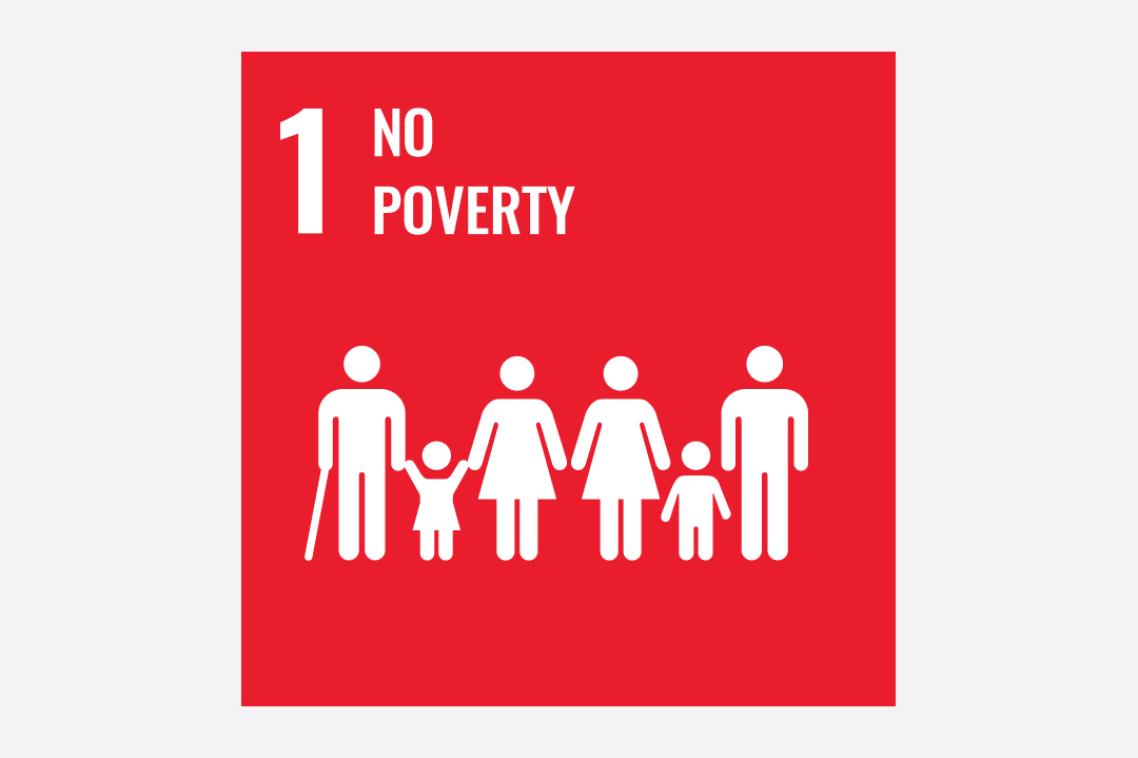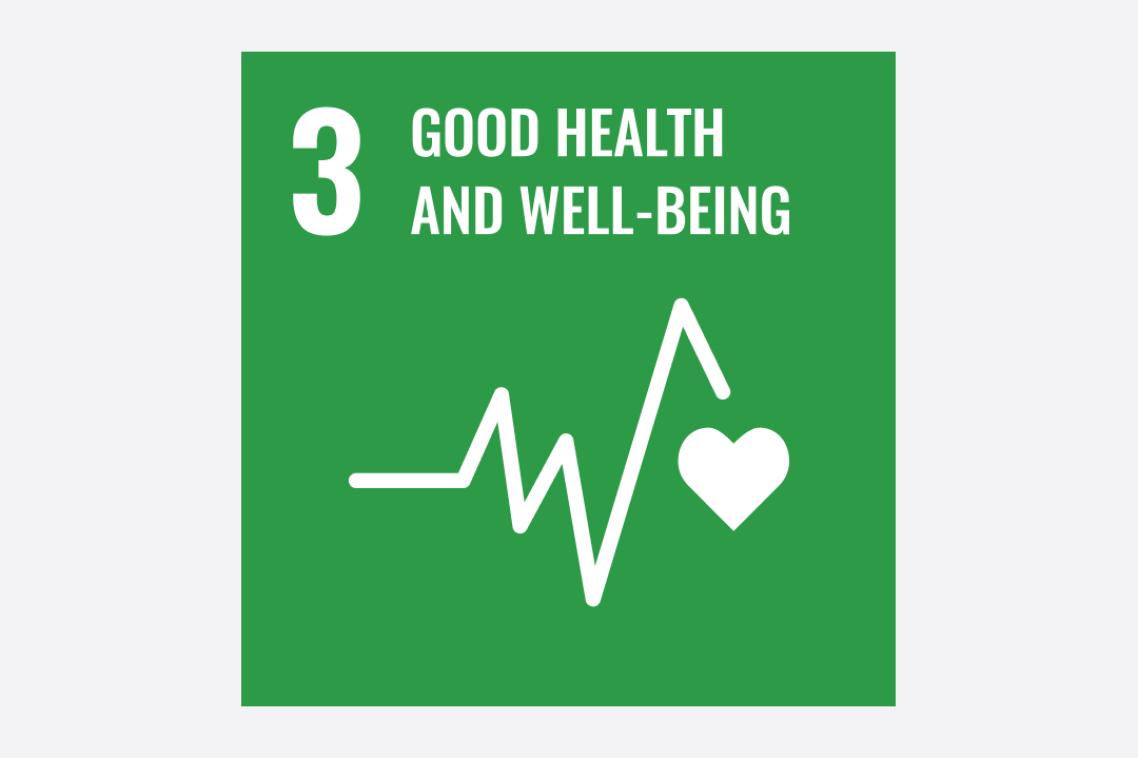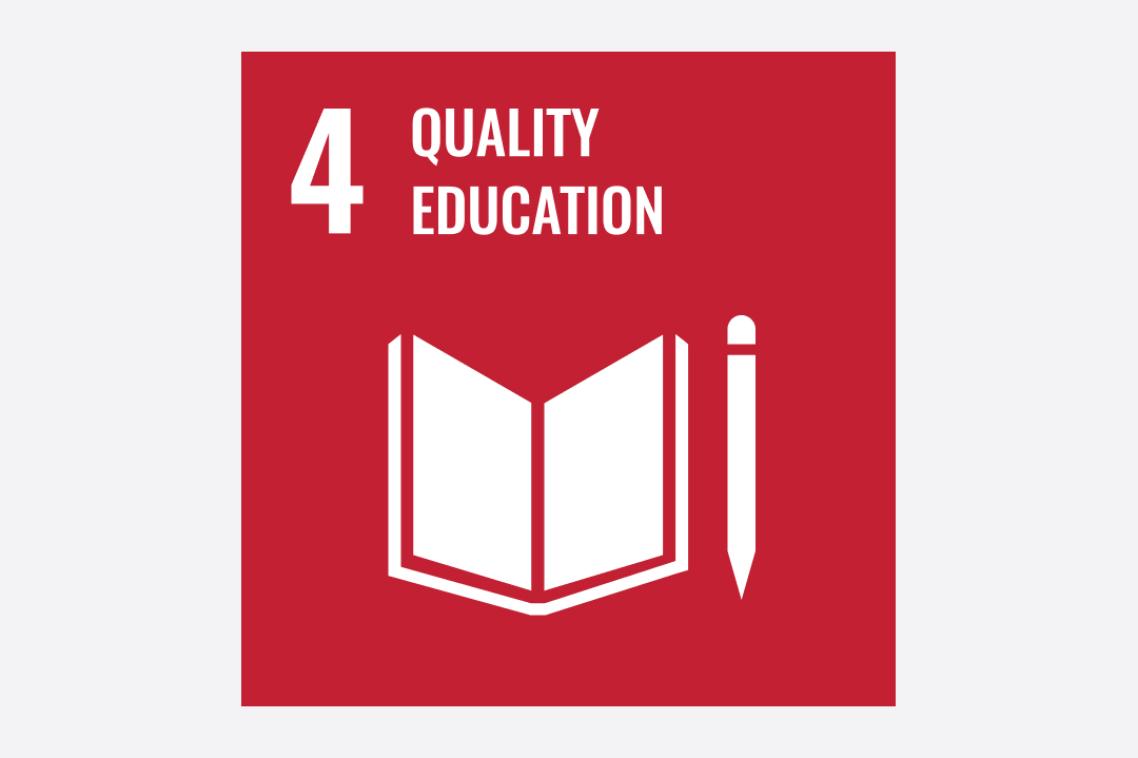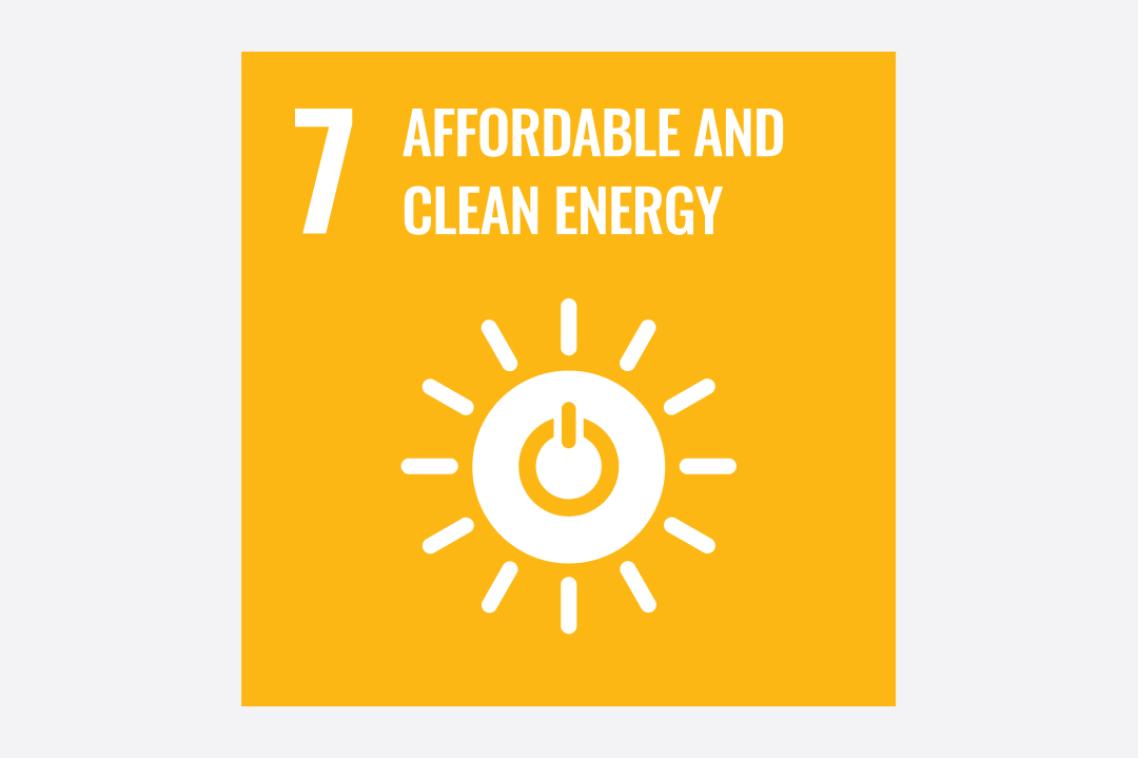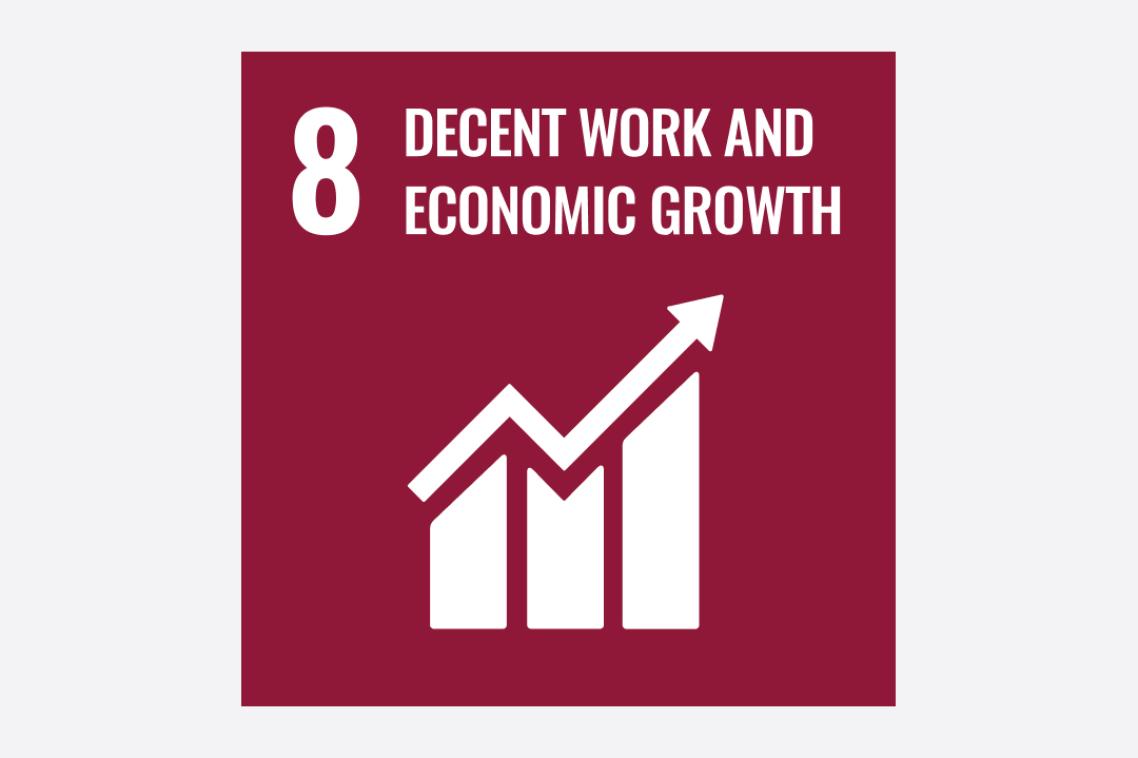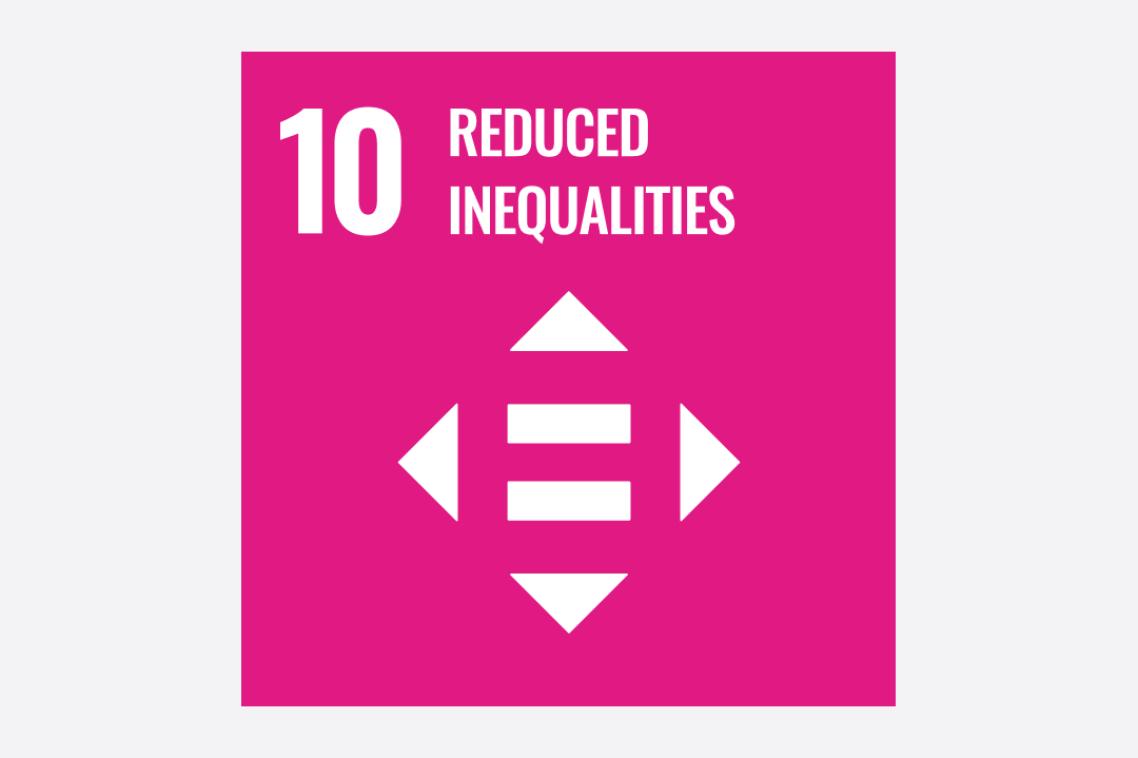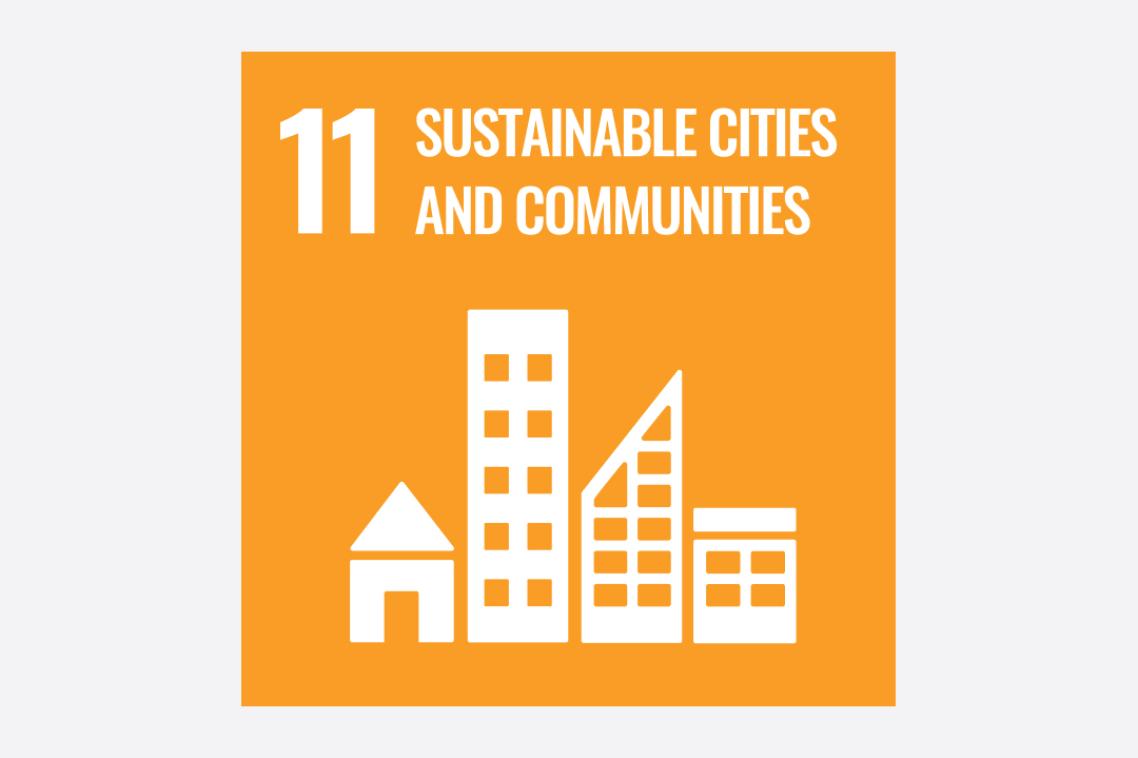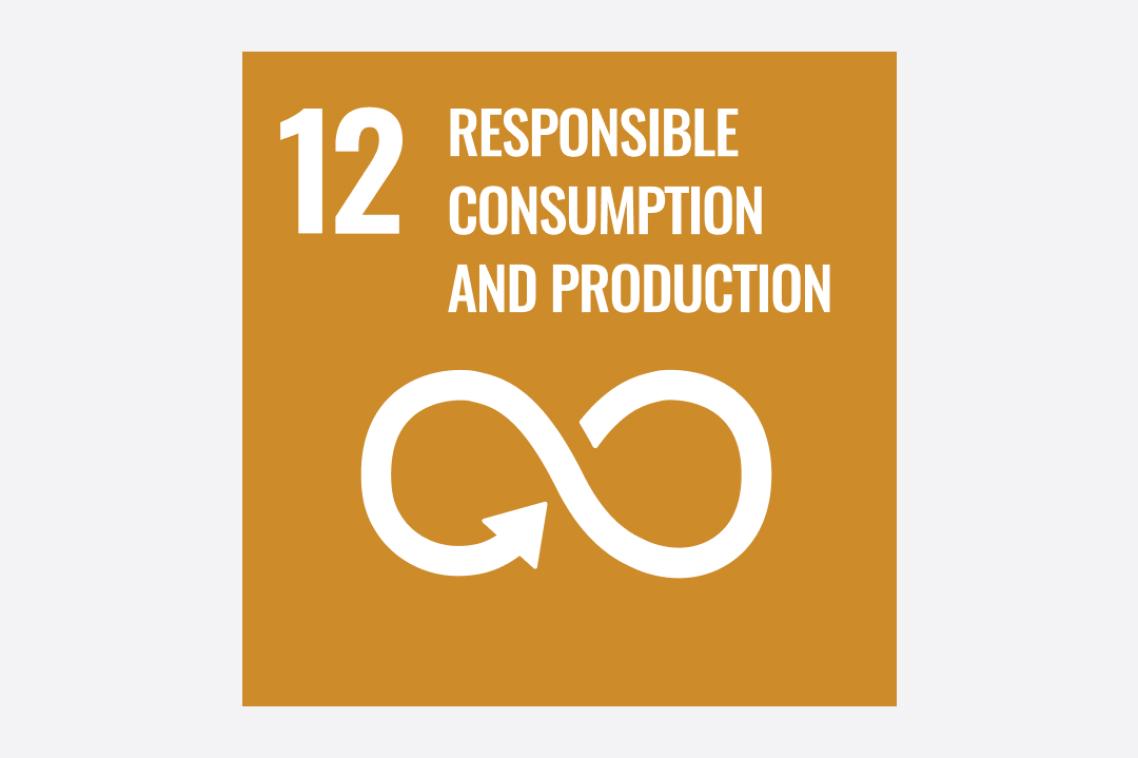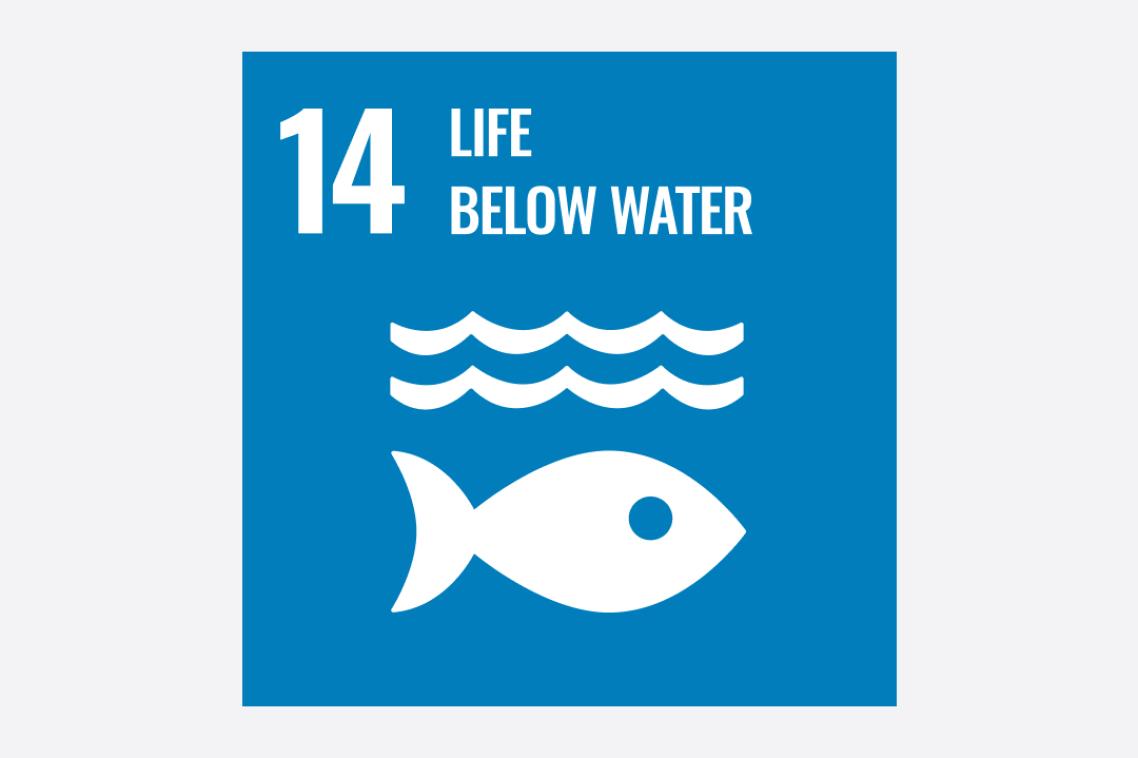SDG 17 – Partnerships for the goals
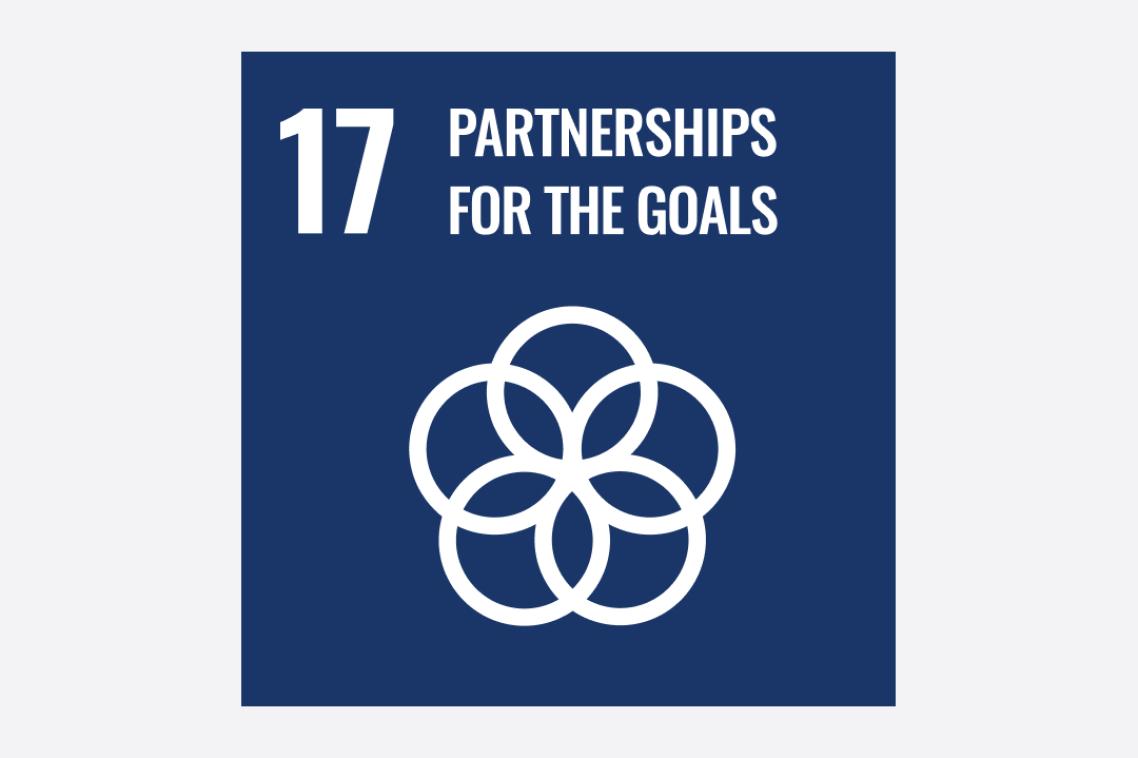
2024 progress
The University of Queensland (UQ) advances SDG 17: Partnerships for the goals through a comprehensive whole-of-institution approach that integrates teaching and learning, research, community engagement, global development and sustainable campus operations.
Our various units and departments collaborate internally and externally to progress the Sustainable Development Goals locally and globally by strengthening and increasing resource mobilisation and strategic investment, enhancing capacity and capability building, and facilitating cross-sectoral cooperation, especially in the areas of science, technology and innovation.
In learning and student development, our partnerships play a key role in providing students with Work Integrated Learning experiences, including in critical areas such as health and allied health, as well as extra and co-curricular activities, and facilitating valuable lifelong learning for the broader community.
Partnerships are also what drive our success in research and innovation. Our strong relationships with government and industry enable The University's contributions to national priorities and enhance the impact and reach of its collaborative infrastructure, precincts and large-scale centres, ensuring benefit across multiple sectors.
UQ’s relationships with the wider community are crucial to successfully delivering The Queensland Commitment and connecting to regional communities. UQ's partnerships with Indigenous communities are of particular importance to The University's reconciliation commitments, which ensure the presence, contributions and recognition of Indigenous staff, students and other stakeholders across teaching, research and operations.
Global partnerships help fulfil our mission of knowledge leadership for a better world. The University's International Development unit spearheads international relationships, initiatives with flagship partners, and new partnerships with educational institutions, governments and communities.
It is UQ's internal relationships – the partnerships across centres, schools, faculties, and other units – that are at the core of UQ’s commitment. Whether between students, researchers or professional staff, these partnerships are at the core of UQ's commitment to pursuing positive outcomes globally and locally, and building a culture based upon UQ’s values.
Read our SDG 17 2024 report (PDF, 374.02 KB)
See how we make a difference across key areas:
Relationships to support the goals
UQ has the most comprehensive discipline profile of any university within Australia. This positions us extremely well to deliver cross-sectoral mission-driven research that is aligned with industry, government and community priorities, and the UN Sustainable Development Goals.
UQ is committed to ensuring that our expertise and resources drive innovation. Our collaborations with industry, government and philanthropic partners facilitate exchange of – and access to – best practices, expert knowledge and state-of-the-art infrastructure, especially to solve economic and societal challenges. Our Collaborative Research Platforms, National Collaborative Research Infrastructure Strategy (NCRIS) facilities and precincts promote cross-sectoral collaboration between industry, NGOs, government and universities.
UQ aims to:
- have a positive impact on society by addressing pressing local and global challenges
- present a coordinated set of capabilities to key partners in government, industry, the not-for-profit sector and Indigenous communities that will allow for co-designed mission-based research activities
- become a ‘destination of choice’ for increased government, philanthropic and business investment, facilitated by the development of deep partnerships, and underpinned by a University-wide approach to accessing our capabilities.
Relationships with regional NGOs and government for SDG policy
UQ aims to play a key role in shaping Sustainable Development Goal (SDG) policy through direct engagement with national governments and regional non-government organisations. UQ researchers contribute across the full policy cycle:
- identifying challenges
- developing strategies
- modelling future scenarios
- enabling adaptive management.
The following projects and initiatives demonstrate how UQ collaborates to inform decision-making and support inclusive, evidence-based policy development through interdisciplinary research, strategic partnerships, and expert advice across sectors.
Queensland Decarbonisation Hub
The Queensland Decarbonisation Hub, led by UQ's Centre for Policy Futures and funded by the Queensland Government, plays a pivotal role in supporting the state’s transition to net zero emissions and climate adaptation. Through interdisciplinary, demand-driven research and policy brokerage, the Hub facilitates 2-way dialogue with decision-makers and delivers system-level insights to inform government strategies.
A major 2024 highlight was the Queensland Decarbonisation Forum held on 2 August, which convened government representatives, policymakers, industry professionals, First Nations people, community groups and landholders. The event featured:
- plenary talks
- interactive panels on technology, nature and place
- a case study on agricultural decarbonisation
- a solutions-focused hackathon.
This forum facilitated knowledge-sharing and dissemination between diverse stakeholder groups, which was especially valuable for the Queensland Government in informing their policies and strategies around climate action.
A parliamentary briefing in April, titled 'Decarbonising Queensland: Fostering Innovation and Competitiveness', addressed key topics such as carbon markets, nature-based solutions, environmental integrity and regional transformation. Throughout the year, the Hub hosted webinars for government and industry stakeholders, including:
- 'Decarbonising Regional Development' (25 July)
- 'Energy Storage in Queensland' (13 November)
- 'Nature-based Solutions and Environmental Integrity' (20 November).
Additionally, the Hub produced targeted policy briefs to guide government decision-making. One brief, 'Carbon Farming & Nature Repair Markets', outlined recent developments in environmental markets and assessed risks and opportunities for Queensland. Another, 'Community is Key to Queensland’s Energy Future', drew on research from Kingaroy and other jurisdictions to emphasise inclusive decision-making and benefit-sharing in energy transitions, offering 5 actionable recommendations to strengthen regional communities.
KONEKSI (Collaboration for Knowledge, Innovation, and Technology Australia and Indonesia) projects
UQ researchers were involved in 2 projects throughout 2024 funded by KONEKSI, a collaborative initiative supporting partnerships between Australian (Department of Foreign Affairs and Trade) and Indonesian organisations. Both projects collaborated with either national government or regional non-government organisations to develop and promote inclusive and sustainable policy and technology for land management in the agricultural sector.
- 'Addressing Vulnerabilities and Enhancing Resilience in the Smallholder Value Chains of Java’s Peri-Urban Food Supply Systems' – engaged stakeholders through participatory workshops, interviews and surveys to develop intervention strategies promoting sustainable agriculture in vulnerable agriculture areas in Java, Indonesia. The project aligns with Indonesia’s vision for climate-resilient agriculture and demonstrates a replicable framework for enhancing sustainability and climate resilience in peri-urban farming systems. The UQ researchers partnered with the Indonesian National Research and Innovation Agency Research organisation for Governance, Economy, and Public Welfare and several key Indonesian universities.
- 'MyINDAH Diet – Inclusive Digital Solutions for Healthy and Sustainable Diets and Food Security in Java’s Urban and Peri-Urban Food Systems' – addressed sustainable use of land through the integration of digital technologies, systems dynamics modelling and community engagement to promote resilient food systems. The project involved building databases of nutritional profiles, engaging communities through digital training, and developing predictive models for climate resilience. These outcomes also contributed to SDG 15 by fostering sustainable land use, conserving ecosystems, and empowering local communities through inclusive digital innovations. Some of the Indonesian partners included Parti Gastronomi (a Java-based local food collective celebrating Indonesian gastronomy) and the Research Organization for Governance, Economy, and Public Welfare (part of Badan Riset dan Inovasi Nasional – BRIN, the National Research and Innovation Agency of Indonesia). These partners worked alongside Australian universities and government, including from the Queensland Government's Department of Agriculture and Fisheries (now the Department of Primary Industries).
ARC Centre of Excellence for Children and Families Over the Life Course (Life Course Centre)
Led by UQ, the Australian Research Council funded Centre of Excellence for Children and Families over the Life Course (Life Course Centre) is a national research centre investigating the ways in which deep and persistent disadvantage endures within families and across generations. The Centre generates evidence-based research to develop new knowledge, technology and practices to benefit those living in, or at risk of, disadvantage. Bringing together a multi-disciplinary network of national and international collaborators, the Centre aims to identify the drivers of deep and persistent disadvantage and develop and trial new solutions in policy and practice, as well as build capacity across academic, government and non-government organisations. The Centre’s network of national partners includes:
- Australian Government Department of Social Services
- Australian Institute of Health and Welfare
- Brotherhood of St Laurence
- Goodstart Early Learning
- Anglicare WA.
Several of the Centre’s 2024 activities directly influenced national government policy and strategy development. For example, research by Centre members was included in the Australian Government Productivity Commission’s report, 'Fairly equal? Economic mobility in Australia', published July 2024. The report uses research by a range of Life Course Centre chief investigators, research fellows, partner investigators and affiliates, to help inform analyses of poverty, inequality, intergenerational mobility, economic growth and opportunities for equality.
In September 2024, the Life Course Centre hosted the International Data for Policy Workshop in Chicago, USA. This 1-day event followed the International Population Data Linkage Network Conference and focused on identifying key factors that support the development of socially acceptable, next generation linked data ecosystems. The workshop featured high-calibre presentations from Australian and international speakers including:
- the World Health Organisation
- Australian Institute of Health and Welfare
- the Australian Bureau of Statistics.
By bringing together researchers, government representatives, non-government representatives and other experts, the workshop sought to advance approaches that deliver higher standards in research, evaluation and policy.
Evaluating effectiveness of integration outcomes for refugees
From 2022-2025, UQ’s Institute for Social Science Research is partnering with the Australian Institute for Family Studies (an Australian Government statutory agency) to develop a new approach to evaluate the Community Refugee Integration and Settlement Pilot (CRISP) and Community Support Program (CSP). The Australian Government Department of Home Affairs commissioned this work to assess how well the Community Refugee Integration and Settlement Pilot (CRISP) and Community Support Program (CSP) are working in achieving strong integration outcomes for refugees compared to existing programs such as the long-running Humanitarian Settlement Program (HSP).
This evaluation, which involves sourcing input from all parties involved, will use both existing data and new surveys and interviews to examine the programs’ effectiveness. The goal is to use this feedback to inform program improvements for future participants and achieve strong integration outcomes for refugees.
ARC Centre of Excellence for Indigenous Futures
UQ is proud to administer the Centre of Excellence for Indigenous Futures. Officially established in December 2023 and launched in 2024 it is the first Indigenous-led Australian Research Council Centre of Excellence. The aim of the Centre is to reduce inequity for Aboriginal and Torres Strait Islander People through an innovative community-led, transdisciplinary research program which is structured around 3 themes, with multiple projects within each theme:
- Theme 1: Law and Justice (Indigenous Community Survivance, Indigenous Deaths and Survivance in Custody, Indigenous Survivance and Correctional Services Programs)
- Theme 2: Education and Economies (Barriers to Indigenous Success and pathways to Survivance, Nourishing Indigenous Education, Transformative Indigenous Economies and Business)
- Theme 3: Health and Wellbeing (Indigenising Health Policy, Creating Culturally Responsive and Empowering Health Institutions, Empowering Indigenous Health Communities of Practice)
Collaboration across sectors is key to the Centre’s goal of producing self-determined, evidence-based and impactful outcomes that fundamentally change the development and implementation of Indigenous policies and programs. As such, the Centre collaborates with both national government agencies and regional non-government organisations both in Australia and overseas. These include:
- the Institute for Urban Indigenous Health
- Stronger Smarter Institute
- National Indigenous Australians Agency (Australian Government)
- Victorian Aboriginal Legal Service
- AIME (Australian Indigenous Mentoring Experience)
- Cape York Partnership
- SNAICC – National Voice for our Children, Australian Human Rights Commission
- Dhadjowa Foundation
- Australian Government Department of Health, Disability and Ageing
- Aboriginal Legal Service (NSW/ACT) Limited
- Australian Government Australian Institute of Health and Welfare
- Lowitja Institute.
Supporting mining governance in Africa
In 2024, representatives from ministries and government agencies across 20 African countries completed the in-Australia component of the Australia Awards Africa ‘Mining Governance’ short course. Developed by researchers from UQ’s Sustainable Minerals Institute (SMI) and Curtin University, the program aimed to bridge theory and practice in sustainable mining governance. Over 3 weeks, participants immersed themselves in intensive sessions across Perth, Central Queensland and Brisbane. Discussions focused on global trends in the mining sector, including the rising demand for strategic and critical minerals, shifting investment patterns and the growing global commitment to sustainable resource management. By equipping participants with essential knowledge and practical insights, the program strengthened their capabilities in regulation, policymaking and sector oversight.
Funded by the Australian Government through the Department of Foreign Affairs and Trade (DFAT), the short course exemplified SDG 17 by fostering international partnerships and capacity building. It brought together 24 participants from countries including:
- Burundi
- Côte d'Ivoire
- Djibouti
- Egypt
- Ethiopia
- Ghana
- Guinea
- Kenya
- Madagascar
- Malawi
- Mauritania
- Morocco
- Nigeria
- Rwanda
- Senegal
- South Sudan
- Tanzania
- Uganda
- Zambia
- Zimbabwe.
Participants represented a wide range of organisations, including those of national governments, such as:
- Egyptian Mineral Resources Authority
- Nigerian Geological Survey Agency
- Rwanda Mines, Gas and Petroleum Board
- African Union Commission
- various ministries of mining, energy, and sustainable development across the continent.
Through collaboration and shared learning, the program contributed to strengthening institutional partnerships and advancing sustainable development in the mining sector.
Cross-sectoral dialogue about SDGs
Through our commitment to conducting brilliant discovery research and collaborating with our partners to translate our research discoveries, we seek to not only create new knowledge but share it in ways that enrich our communities, our economy and the environment. The following examples demonstrate how we achieve this through initiating and participating in cross-sectoral dialogue about the SDGs.
Coral Reef Rescue: Resilient Coral Reefs, Resilient Communities Project
In 2024, UQ's leadership of the Coral Reef Rescue: Resilient Coral Reefs, Resilient Communities project continued to support cross-sectoral dialogue about the SDGs. Funded by the Global Environment Facility (GEF) and implemented via the World Wildlife Fund (WWF GEF Agency), the project brought together national government ministries, technical partners, and local communities across 6 countries – Fiji, Solomon Islands, Indonesia, Philippines, Madagascar, and Tanzania – to build capacity and develop solutions for the long-term survival of climate-resilient coral reef ecosystems.
A key cross-sectoral engagement activity occurred at the 10th GEF International Waters Conference (IWC10), held in Punta Del Este, Uruguay, from 23–26 September. UQ facilitated a clinic session focused on conserving resilient coral reefs through national and inclusive approaches. Using examples from Fiji and Indonesia, the session introduced the concept of ‘National Hubs’, platforms for inclusive governance and multi-sectoral stakeholder engagement. These hubs were presented as vehicles for long-term conservation planning, demonstrating how cooperative planning can address environmental degradation and build resilience against future climate impacts.
Tourism Destination Decarbonisation Toolkit
UQ developed a digital toolkit to help tourism destinations build climate mitigation capacity and decarbonise tourism. Based on research and real-world case studies, the toolkit provides practical strategies across 9 decarbonisation areas. It is designed for destination management organisations (DMOs) to develop a coherent and comprehensive climate mitigation plan for systemic change, and includes a mobile-friendly website to increase accessibility. The project supports the tourism sector’s transition to sustainability and was showcased at the 2024 United Nations Climate Change Conference in Azerbaijan (COP29), underlining its global relevance in addressing climate change through industry-specific solutions.
Keynote address at the 2nd UN Ocean Decade Regional Conference
Professor Peter Mumby's keynote address promoted cross-sectoral dialogue with UN agencies, government bodies, the private sector, NGOs and civil society at the 2nd UN Ocean Decade Regional Conference & 11th IOC Sub-Commission for the Western Pacific’s (WESTPAC) International Marine Science Conference in Bangkok from 22–25 April 2024. Exploring interventions to build coral reef resilience under global and local impacts, Peter’s keynote address promoted key UN activities that draw together science with pragmatic actions to advance SDG 14 in the Ocean Decade.
International collaboration and data gathering for SDG
As part of its Strategic Plan 2022–2025, UQ seeks to have a positive impact both national and globally. At a global level, we aspire to contribute to advancing the UN SDGs, including by participating in international collaboration on gathering or measuring data to aid this goal.
Terrestrial Ecosystem Research Network (TERN Australia)
In 2024, the Terrestrial Ecosystem Research Network (TERN Australia), led by UQ and funded by the National Research Infrastructure Strategy, directly supported the advancement of SDG 15 by conducting ecosystem monitoring and collaborative data gathering. TERN delivers research infrastructure essential to Australia’s environmental monitoring capabilities – providing data to a wide range of audiences, including researchers, government and NGOs. TERN’s open-access data services platform provides terrestrial and coastal ecosystem observations – enabling researchers nationwide to understand and predict ecosystem changes over time as well as contributing to international environmental programs and data gathering. Their interactive tools enable customised local government area reports, and the Threatened Species Index (TSX), delivers crucial species population intelligence at national, state and regional levels – enabling conservation progress monitoring and informing targeted interventions.
TERN infrastructure and data are used by researchers to investigate a great diversity of ecosystem questions. The network intersects with a number of international communities of practice in a range of disciplines and TERN is engaged with international interest groups to:
- ensure that Australian ecosystem research is well-represented in Australia, in our region (South-East Asia) and globally
- contribute to global discourse on current and emerging ecosystem knowledge
- promote TERN Infrastructure and data – and their availability to all researchers
- exchange ideas with affiliated peak bodies and track current practice in other countries
- support evidence-based decision making on management of ecosystems and landscapes.
TERN data is increasingly being used in multi-region and multi-discipline research, particularly in climate science, and it is expected that large-scope research programs looking at complex processes and change at global/regional scale will become common.
Coral Watch and the Great Reef Census
Coral Watch, based at UQ, continued its work on collaborative international data collection and sharing for SDGs. One initiative in 2024 involved the regional NGO Citizens of the Reef (Cairns) and civil society to facilitate data gathering for the Great Reef Census, a collaboration with citizens from around the world to protect coral reefs – including the Great Barrier Reef. The census involved hundreds of Queenslanders who visited the Reef, and thousands more global citizens who helped analyse the data. These efforts are aided by CoralWatch’s education and public outreach. For example, the development of the Coral Health Chart, a simple tool that requires no prior training and is available in 12 languages, which enables users to quantify changes in coral colour, providing valuable data on reef health.
In addition, UQ’s CoralWatch also manages an interactive online platform that offers up-to-date global reef condition data and fosters a growing network of volunteers. Through these data collection and sharing efforts, CoralWatch not only raises awareness of reef conservation and climate change but also encourages behavioural change toward a more sustainable, low-carbon future. Its overarching aim is to build public understanding of reef ecosystems and provide meaningful opportunities for individuals to contribute to their protection.
UQ’s International Comparison Database (UQICD)
UQ’s International Comparison Database (UQICD), developed by the UQ School of Economics, is a unique resource that combines international data on real incomes and income inequality to assess economic welfare across different countries. It integrates and analyses large-scale economic data, which is made publicly available for researchers and policymakers to access and apply to global economic challenges. First made available to users in 2011, the most recent major update to the database was in 2023 and further functionality was added in 2024. The website remains public and continues to be used and have impact, with 70% of the 2024 users being new users of the database. The 2024 presentations and articles sourcing data from UQICD included:
- 'Contrasting Trajectories: The Political Economy of Growth in China and India' seminar at Hitotsubashi University, Japan, May 9 2024. Presented by Prof. D.S. P Rao
- 'Convergence in the World Economy — Evidence from the Last Fifty Years' at the 38th International Association for Research on Income and Wealth General Conference, London, August 26–30, 2024. Presented by Prof. Alicia N. Rambaldi
- M. Moatsos and A. Lazopoulos, 'Stress-testing the international poverty line and the official global poverty statistics'. Humanities and Social Sciences Communications, 11(1):850, 2024. DOI: 10.1057/s41599-024 03260-6. ISBN: 2662-9992. (Profs. Rao and Rambaldi acknowledged for the assistance provided to the authors)
- Hajargasht, G, 'Divergence Between Parametric Income Distributions', Economics Letters, 2024, pp. 111543.
Collaboration for SDG best practice
It is implicit in our vision, ‘knowledge leadership for a better world’, that UQ seeks to have to have an extensive global reach in education and research with a strong commitment to capacity building in the Indo-Pacific. The below examples demonstrate ways in which we engage in international collaboration and research, review comparative approaches, and develop international best practice to tackle challenges associated with the SDGs.
Marine protected areas site selection – World Bank collaboration
Throughout 2024, UQ researchers collaborated with the World Bank and international partners in Indonesia and the Philippines to develop practical tools to advance government best practice when selecting appropriate sites for Marine Protected Areas (MPAs) and developing MPA strategies for both biodiversity and fisheries management. These methods were rolled out in 27 regions of Indonesia and now have global application. The success led the UN Food & Agricultural Organisation (FAO) to approach UQ to support design and implementation of a new fisheries project for the Gulf of Thailand ($11m), where Malaysia wished to extend its MPA protection but also understand the fisheries benefits and degree to which they contribute to national fisheries targets. UQ has been invited to execute this project (2025–2030) in close cooperation with the Malaysian Department of Fisheries.
ARC Centre of Excellence for Indigenous Futures (ARC-IFC)
2024 saw the launch of a new $43.3 million pioneering Indigenous-led and UQ-headquartered research initiative, the Australian Research Council Centre of Excellence for Indigenous Futures (ARC-IFC). One of the Centre’s Strategic Objectives 2024–2030 is to work collaboratively with community organisations, government, relevant industry stakeholders, community end-users and researchers in other sectors to deliver ground-breaking cross-sectoral policy reform and models of best-practice directly related to the National Agreement on Closing the Gap 2020 4 Priority Reform areas.
The Centre aims to provide unprecedented relational transdisciplinary cross-sectoral research focusing on the interconnections between legal, education and health contexts and build new networks with relevant international research programs, and to establish a national (and international) Indigenous Knowledge Infrastructure (NIKI) for Indigenous futures, including cross-sectoral measures, models, data systems and adaptive structures. To achieve this, ARC-IFC is collaborating with over 20 local and international partners, including government, regional NGOs and research institutions. Partners include 6 Australian universities, the University of Alberta Canada, and 3 New Zealand universities, in addition to the Australian Human Rights Commission, the Australian Government, the Cape York Institute and the Dhadjowa Foundation, among others.
Leveraging fisher skill to reduce bycatch in global fisheries
Dr Leslie Roberson from the School of the Environment worked with international collaborators for the project 'Leveraging fisher skill to reduce bycatch in global fisheries' to explore how individual fishers' skills can reduce bycatch, the non-target species caught during fishing. This involved a 3-day workshop in June at The Institute of the Americas, University of San Diego, California, which was attended by 23 experts in sustainable fisheries management, representing 11 countries. A quarter of the attendees were from Spanish-speaking countries, and the participants primarily came from academia, NGOs, and government sectors, with additional representation from industry and private sectors. Most participants had 2–3 decades of experience in fisheries, with some junior attendees and others with over 4 decades of experience.
This was followed by 2 follow-up workshops with smaller groups in October at the University of Cape Town, South Africa, and in June at the Leibniz-Institute of Freshwater Ecology and Inland Fisheries (IGB) in Berlin, Germany. One paper was published in December 2024, titled 'Opportunity to Leverage Tactics Used by Skilled Fishers to Address Persistent Bycatch Challenges', and the research was shared at 3 international conferences:
- the World Fisheries Congress in Seattle, USA (2-7 March 2024)
- the 74th International Tuna Conference at Lake Arrowhead, California, USA (20-24 May 2024)
- the 7th International Marine Conservation Congress, Cape Town, South Africa (13-18 October, 2024).
By educating communities, raising awareness and promoting fisher-led solutions that are cost-effective and environmentally responsible, the project contributes towards developing best practices and advancing SDG target 14.4.
Collaboration with NGOs for SDGs
Our core purpose is to deliver for the public good through excellence in education, research and engagement with our communities and partners: local, national and global. A strength of UQ’s research partnerships, programmes, and educational activities is collaboration with NGOs to tackle the SDGs.
UQ Pro Bono Centre
The UQ Pro Bono Centre, a flagship program of the UQ Law School, provides free legal support to communities in need by connecting law students with organisations serving vulnerable groups. The Pro Bono Centre supplies skilled law students to legal professionals, barristers, Community Legal Centres, non-government organisations and charities to help with pro bono or public interest matters. It also creates legal information resources and holds events to support pro bono work. Through supervised projects, students assist with legal education, research, casework, and law reform, helping those who may not otherwise access justice. Initiatives like the Climate Justice Initiative and the Regional, Rural and Remote (RRR) Project extend services to underserved areas. These efforts improve legal literacy, empower individuals and promote fairness. Through these initiatives, the Centre strengthens community resilience and ensures legal support reaches those who need it most.
The UQ Law School’s Pro Bono Centre collaborates with the Queensland Prisoners’ Legal Service (an independent, not-for-profit community legal centre) on the Deaths in Custody Project, established in 2016 as the first publicly available national database of deaths in custody. Staffed by Law students, it continues to compile and publish data about deaths that occur in prisons, police operations and other custodial environments around Australia each year. This is an important resource for researchers, coroners and members of the public and allows for comprehensive analysis of national trends and comparisons between jurisdictions as part of work that will address this problem.
The UQ/Caxton Human Rights Case Law Project is an initiative of the UQ School of Law’s Pro Bono Centre and Caxton Legal Centre Inc (a community legal centre), which aims to ensure that practitioners, researchers, students and members of the public have easy access to all published cases that refer to the Human Rights Act 2019 (Qld).
Through these initiatives, the UQ Law School’s Pro Bono Centre demonstrates UQ’s commitment to collaborating with NGOs to tackle human rights and legal challenges associated with SDG 16.
360 Kids Community Network
The 360-Kids Community Network addresses the risks associated with starting school for developmentally vulnerable children, such as increased risk of poor health, education and social outcomes. Located within UQ’s Faculty of Health, Medicine and Behavioural Sciences, the network promotes early intervention and prevention, aiming to improve health, learning, and wellbeing before school entry. It focuses on high-risk children and disadvantaged communities, working in partnership with local groups and agencies to tackle SDGs 3,4 and 10. In addition to collaboration with state government agencies, other key partners include Thriving Kids Queensland Partnership, MICAH, Community Living Association and Social Ventures Australia.
COR NTD Meeting for the Pacific Islands
UQ partnered with international NGO Coalition for Operational Research on Neglected Tropical Diseases (COR-NTD) and the Australasian College of Tropical Medicine to host the second annual Regional COR-NTD Meeting for the Pacific Islands on 25–26 September 2024, in Brisbane, Australia. The goal of this meeting was to bring together key stakeholders to address how to eliminate lymphatic filariasis, scabies, trachoma, leprosy and other NTDs from the region. This collaborative event addressed challenges around SDG 3 with breakout sessions moving the research agenda forward by sharing approaches to a range of challenges including community engagement, surveys, leveraging AI, training and capacity strengthening, use of digital training tools and managing disability.
Student volunteering
At UQ, student volunteering is a powerful avenue for fostering global partnerships and advancing SDG 17: Partnerships for the Goals. Through structured programs and community engagement, UQ students collaborate with non-governmental organisations (NGOs), government bodies and international partners to address pressing social and environmental challenges. Through these initiatives, UQ empowers students to become active global citizens who understand the value of collaboration, equity and sustainable development.
One standout initiative is the UQ Employability Award, which recognises students who engage in volunteering, leadership, and global experiences. Many participants volunteer with NGOs such as Oxfam Australia, The Smith Family, and Conservation Volunteers Australia, contributing to projects that support education, poverty alleviation and environmental sustainability.
In 2024, UQ partnered with Engineers Without Borders (EWB) to offer students in engineering and environmental science the opportunity to co-design sustainable infrastructure solutions with remote and Indigenous communities. This partnership not only enhances students’ technical and intercultural skills but also fosters long-term, community-led development outcomes.
Additionally, UQ’s StudentHub platform connects students with hundreds of volunteering opportunities, both locally and internationally. These experiences are integrated into the curriculum through Work Integrated Learning (WIL) and Community-Engaged Learning programs, ensuring that students reflect critically on their contributions and the broader impact of global partnerships.
Online courses in coral reef sustainability
The 'Coral Reef Rescue: Resilient Coral Reefs, Resilient Communities' project made available2 free online courses in 2024 to support the international conservation of climate-resilient coral reefs and the aims of the GEF 7 Coral Reef Rescue Project and the broader Coral Reef Rescue Initiative. NGO partners collaborating on the GEF 7 Coral Reef Rescue Project include:
- World Wildlife Fund
- Coral Reef Rescue Initiative
- Wildlife Conservation Society (WCS)
- Reef Check Indonesia
- Palawan Council for Sustainable Development (PCSD)
- Marine Parks and Reserves Tanzania.
The educational courses, which tackle both SDGs 14 and 15, are now available in both English and Bahasa Indonesia on UQ’s Edge online learning platform. The courses include:
- CRRI101x Coral Reefs: Introduction to Challenges and Solutions
- CRRI103x Coral Reefs: Sustainable Blue Economy.
Those taking the courses explore topics such as reef ecology, marine conservation strategies and the role of the blue economy in sustainable development. The courses are open to anyone with an interest in sustainability, coral reef conservation and community resilience.
UQ's 2024 Sustainable Development Goal Reports
Our commitments to leading reconciliation, global development and capacity building, broadening access to education and leveraging our research impact to strengthen the economy demonstrate just some of the ways in which we strive to deliver for the public good, seeking to enrich communities in Queensland and around the world.
UQ seeks to broaden its contribution to the public good through our commitment to the United Nations Sustainable Development Goals (SDGs). We work to support and promote the UN Sustainable Development Goals in research, teaching, external engagement and campus operations. At a global level, we aim to help advance the UN Sustainable Development Goals, and to leverage UQ’s development expertise to support capacity building in the Indo-Pacific.
The following 2024 reports demonstrate UQ’s contribution to each of the UN Sustainable Development Goals:
- SDG 1: No poverty (PDF, 231.84 KB)
- SDG 2: Zero hunger (PDF, 294.02 KB)
- SDG 3: Good health and well-being (PDF, 239.48 KB)
- SDG 4: Quality education (PDF, 304.19 KB)
- SDG 5: Gender equality (PDF, 313.12 KB)
- SDG 6: Clean water and sanitation (PDF, 225.03 KB)
- SDG 7: Affordable and clean energy (PDF, 238.35 KB)
- SDG 8: Decent work and economic growth (PDF, 277.15 KB)
- SDG 9: Industry, innovation and infrastructure (PDF, 246 KB)
- SDG 10: Reduced inequalities (PDF, 328.49 KB)
- SDG 11: Sustainable cities and communities (PDF, 360.61 KB)
- SDG 12: Responsible consumption and production (PDF, 233.28 KB)
- SDG 13: Climate action (PDF, 219.62 KB)
- SDG 14: Life below water (PDF, 282 KB)
- SDG 15: Life on land (PDF, 232.3 KB)
- SDG 16: Peace, justice and strong institutions (PDF, 344.52 KB)
- SDG 17: Partnerships for the goals (PDF, 374.02 KB)
Read further detail on UQ’s 2024 Sustainable Development Goal activities.
Education for sustainability and SDGs
Teaching the next generation
Core sustainability concepts are embedded within the learning outcomes in curriculum across multiple schools and faculties, contributing towards preparing our students to inspire and change the world around them.
We help prepare students for success in the future – both in the workforce and more broadly in society. This includes a commitment to focus on sustainability and ensuring all students are aware of, and aiming to contribute to, the SDGs.
How we are achieving this
UQ’s Graduate Attributes
At UQ, our Graduate Attributes are intentionally aligned with the United Nations Sustainable Development Goals (SDGs) to ensure that students graduate not only with academic excellence but also with the values and capabilities needed to contribute meaningfully to a sustainable and equitable world.
UQ graduates are developed as:
- accomplished scholars, who apply disciplinary knowledge to global challenges such as climate change, poverty, and health inequities (SDGs 2, 3, 13)
- courageous thinkers, who critically evaluate complex problems and innovate for sustainable solutions (SDGs 9, 11, 12)
- connected citizens, who engage ethically and collaboratively with diverse communities, supporting goals like reduced inequalities and peace, justice, and strong institutions (SDGs 10, 16)
- culturally capable individuals, who respect and integrate Indigenous knowledge and global perspectives, advancing inclusive and equitable education and partnerships (SDGs 4, 17).
These attributes are embedded across the curriculum and co-curricular experiences, including community-engaged learning, global mobility programs, and sustainability-focused internships. Students are encouraged to reflect on their role in achieving the SDGs and to take action through volunteering, research and advocacy.
By aligning graduate outcomes with the SDGs, UQ ensures that students are not only prepared for the workforce but also equipped to lead with purpose and contribute to a more just, sustainable and interconnected world. Other targeted initiatives within UQ that align curricular and extra-curricular learning outcomes with the SDGs include:
- UQ Faculty of Medicine’s 2023–24 Planetary Health Report Card (PDF, 481.45 KB) – The Planetary Health Report Card is a student-driven metric-based tool for evaluating and improving planetary health content in health professional schools. At each participating institution, including UQ, student-led, faculty-mentored teams fill out the report card, identifying opportunities for improvement and reaching out to relevant staff and faculty along the way. UQ’s 2023–24 report indicates that UQ is achieving well in integrating planetary health across curriculum, interdisciplinary research, community outreach and advocacy, support for student-led initiatives, and campus sustainability; and also provides some recommendations for further potential improvements.
- The UQ Green Ambassador Program 2024 empowered students to lead sustainability initiatives across campus. Through workshops and volunteering, ambassadors promoted environmental awareness and community engagement. The program focused on leadership development and practical action, helping students contribute to UQ’s sustainability goals. Managed by the UQ Sustainability Office, it provided a platform for students to collaborate, advocate, and inspire change within the university and beyond.
UQ and United Nations Principles for Responsible Management Education (UNPRME):
Since 2015, UQ Business School is a proud supporter and Advanced Signatory of the United Nations Principles for Responsible Management Education (UN PRME), an initiative of the United Nations Global Compact founded in 2007 as a platform to encourage and increase awareness and integration of sustainability in business schools around the world. In 2024, UQ Business School's commitment to UNPRME involved championing sustainability through a variety of activities, including continued work on mapping of over 200 UQ Business School courses to the SDGs. Many of these courses either focus on sustainability or include activities around specific SDGs, including accounting, event management, communication, finance, marketing and tourism. The SDG mapping underscores how sustainability is embedded within the School’s offerings and supports greater shared understanding of the School’s contributions to each of the SDGs.
UQ Business School's PRME also helped ensure that responsible management principles, including sustainability, are embedded into course activities and events. For example, the 2024 Digital Transformation Hackathon (part of BISM3208/BISM7208 Business Information Systems Capstone) challenged students to solve highly relevant societal problems (e.g. Australia’s housing crisis, blockchain for good, using cloud to respond to the SDGs).
Another focus area was supporting partnerships with other UQ areas and with external organisations to promote responsible and sustainable management practices. This included partnering with UQ Executive Education, providing courses in General Practice Leadership Excellence and the Metro South GGS Emerging Executive Leadership program, empowering medical experts to lead with confidence and influence in shaping the future of primary health care for Queensland. Similarly, partnerships within UQ Science Faculty supported sustainability teaching into climate, energy and environment programs.
Courses/units in sustainability and SDG-related initiatives
We offer a wide range of dedicated undergraduate and post graduate degree programs that address sustainability and the SDGs, including specialist courses (units) within each program.
How we are achieving this
Science
Both our generalist and specific programs in Science provide students with wide-ranging skill sets aligned with sustainability and the SDGs, in particular SDGs 2, 10, 11, 12, 13, 14 and 15. These programs include the Bachelor of Science and Bachelor of Agricultural Science where students focus on areas such as coastal and ocean science, ecology and conservation biology, sustainable crop and livestock production, soil science, and horticulture. More specifically, the Bachelor of Environmental Management (Honours) and Bachelor of Wildlife Science provide students with specific skill sets to tackle pressing environmental challenges through courses such as:
- BIOL1030: Biodiversity and the Environment
- ENVM2100: Foundations of Sustainable Development
- ANIM3033 Wildlife Population Management.
Postgraduate programs (including graduate certificates, graduate diplomas and masters by coursework) in our Faculty of Science allow for a deeper understanding of specific expert areas, including Animal Science, Biotechnology, Conservation Biology and Environmental Management.
The UQ Study Abroad – Australian Environments and Sustainability program is open to International students, providing an opportunity to explore strategies to improve sustainability, manage ecosystems and preserve global biodiversity within an Australian context, and can include relevant courses from degree programs as well as extracurricular activities, such as volunteering for an ecology project, attending marine science seminars or joining a range of clubs and societies.
Engineering
The Bachelor of Engineering (Honours) offers the largest choice of engineering programs in Queensland, with a number of distinct specialisations, majors, and minors that align with SDGs 6, 7, 11 and 13.
An example of a major field of study within this program is the Water and Marine Engineering Major, which equips students to use innovative monitoring and modelling techniques to design efficient, adaptable and sustainable waterways, coastlines and resilient infrastructure, including designing and building renewable hydropower and ocean energy systems essential to reducing carbon emissions and managing climate change. Students in this major learn how to protect large areas of inland flood plains, beaches, estuarine zones and coral reefs, leading Australia's efforts in developing promising locations for water resources, hydro-power and tidal and wave energy. Other majors include Civil Engineering, Electrical Engineering and Environmental Engineering.
Postgraduate programs within Engineering relevant to sustainability and SDGs include the Master of Urban Water Engineering (Professional) which provides engineers with the integrated knowledge and skills required to solve complex engineering challenges in a changing world, particularly as the trend towards urbanisation and associated water stress in modern cities is strengthening. Similarly, the Master of Sustainable Energy provides students with a deep understanding of how responsible energy systems can address and mitigate growing climate change impacts. The Master of Entrepreneurship and Innovation also includes a Sustainable Energy Field of Study providing students with the experience to practically apply theory, with options to conduct sustainability analyses of real-life organisations, assess and present solutions.
Health, Medical and Behavioural Sciences
Programs across our Health, Medical and Behavioural Sciences faculty most explicitly align with SDG 3, but also with SDGs 5 and 10 as they seek to ensure our graduates are equipped to understand the importance of equitable global health outcomes for all people globally.
UQ’s Doctor of Medicine (MD) is an internationally-renowned postgraduate-entry program designed to graduate doctors capable of meeting future medical challenges in a wide variety of settings nationally and internationally. It is underpinned by our values and our world-class teachers and experts in their chosen field of research, ensuring the education program is learner-centred, research-driven and based on best practice.
Bachelor’s level programs are available across health and allied health disciplines, all of which integrate evidence-based practice, cultural competence, and community engagement through advanced clinical training and interprofessional learning experiences. Programs include but are not limited to:
- biomedical science
- health sciences
- clinical exercise physiology
- exercise and sport sciences
- human movement and nutrition
- dental science
- midwifery and nursing
- psychological science
- occupational therapy
- pharmacy
- speech pathology.
Specific courses within these programs include PUBH1103: Health Systems and Policy and NURS1201: Frameworks for Practice, which develop students’ knowledge about the Australian healthcare service, the diverse communities it serves, and the frameworks and discourse that underpin delivery of safe, high quality healthcare. The Bachelor of Health Sciences also includes a focus on women-centred care, aligned with SDG 4, with courses such as Principles of Midwifery & Woman Centred Care, and Woman Centred Care in Practice.
Postgraduate programs in health and medical areas include:
- audiology studies
- clinical neuropsychology
- clinical psychology
- organisational psychology
- counselling and mental health
- clinical pharmacy
- environmental health sciences
- epidemiology
- nursing studies
- occupational therapy
- pharmaceutical industry practice
- physiotherapy
- public health
- speech pathology
- sports medicine.
Many courses within these programs are specifically relevant to equitable health outcomes as articulated in SDG 3 – for example, the Master of Public Health program includes courses on First Nations Health and Wellbeing, and Managing Global Disease Priorities.
Business, Economics and Law
A range of undergraduate and postgraduate courses within our Faculty of Business, Economics and Law develop students’ skills and expertise in areas that align with SDGs 1, 5, 8, 9, 10, and 16.
The Bachelor of Laws (Honours) and its associated dual degrees are designed to develop graduates who are not only legally proficient but also ethically grounded and with an understanding of socially responsible practice in local and global contexts. Courses include LAWS5124: Human Rights Law and LAWS3705: Public International Law.
A range of programs are available relating to commerce, economics, tourism, business and management. Many of their courses enhance students’ understandings around sustainability in its various forms, and provide training on ethical practices, ranging from areas such as modern slavery and greenwashing, to sustainable development, conservation of renewable and non-renewable resources, employment relations and the provision of decent work.
Postgraduates are similarly exposed to practices relating to positive environmental, economic and social impacts in the Master of Business program which includes a specialisation in Organisational Sustainability, the Master of Entrepreneurship and Innovation, and the Master of International Economics and Finance.
Humanities, Arts and Social Sciences
In UQ’s Faculty of Humanities, Arts and Social Sciences, a diverse variety of programs and courses are provided that relate to many of the SDGs.
Our humanities programs such as the Bachelor of Arts offers a range of majors and minors to support individuals towards understanding social issues around the world, including in:
- International Relations
- Peace and Conflict Studies
- Political Science
- Sociology
- Economics
- Geography
- Religious Studies.
Informed by critical research, these majors address current and pressing global challenges that align with SDGs 16, 11, 5, and 8, such as conflict and peacebuilding, political systems and justice, socioeconomic inequity, international development, climate change, population growth and the relationship between religion and secularity.
Of particular relevance to SDG 5 is the Gender Studies minor, which explores gender, sex, and other categories of difference from an intersectional lens. Courses such as Sex, Gender and Social Relationships, Indigenous Gender Matters, and Gender, Peace and Security in Global and Local Perspective aim to equip students with critical thinking skills to analyse gender's intersection with various aspects of life and society.
UQ’s social science programs address key pressing local and global issues relating to SDG 10 in particular, but also SDGs 5, 8, 9, 11 and 16. For example, majors in the Bachelor of Social Science such as the Development Major, Environment and Society Major and Health and Social Policy Major enhance students analytical and critical thinking skills across topics such as poverty, homelessness, gender inequality, the social and environmental causes of disease, and the social impacts of climate change. The Bachelor of International Studies also includes a major in International Inequality and Development, which covers key issues, concepts and approaches to global development, inequality and poverty in historical and contemporary contexts. The Bachelor of Politics, Philosophy and Economics (Honours) offers an integrated, cross-disciplinary perspective that explores current and future global challenges through broad and rigorous training in the foundations of politics, philosophy and economics.
Critical to addressing SDGs 10, 5 and 8 is the Bachelor of Social Work, which provides students with skills to champion the rights of and empower those from disadvantaged groups. It also provides a robust understanding of navigating welfare and social security systems in Australian society, and develops professional skills in social work practice with particular groups or in particular settings across specific areas such as child, youth and family, health and ageing, and mental health.
SDG 4 is addressed through both the Bachelor of Education (Secondary) and Bachelor of Education (Primary) which are 4-year, pre-service teacher qualifications designed for effective teacher preparation in the contemporary context. In addition to core courses on teaching numeracy and literacy, other courses are of particular relevance to SDG 10, for example:
- EDUC2090 Indigenous Knowledge & Education
- EDUC2750 Multilingualism and Education
- EDUC3740 Health, Well-being and Education Pedagogical Content Knowledge
- EDUC3760 Building Inclusive Primary Classrooms.
Education for SDGs in the wider community
UQ actively engages the broader community through a range of open events, resources, and outreach activities that promote sustainability and the United Nations Sustainable Development Goals (SDGs). These educational outreach initiatives, designed to foster public awareness, dialogue and action on global challenges, are often free of charge and open to all, including alumni, local residents, displaced people and refugees.
How we are achieving this
- UQ Alumni and Community events take place in-person and online, across the globe, throughout the year and frequently address topics relating to the SDGs. Some examples from 2024 include:
- Why we need minerals to save our world: TEDxUQ by Daniel Franks – In this TEDxUQ talk, Professor Daniel Franks (Deputy Director of UQ's Sustainable Minerals Institute) discussed how there is more to the story of mining than we typically see, beyond the internationally recognised interconnection between minerals, materials and sustainable development. Daniel's research is dedicated to understanding the role of minerals in the reduction of poverty, and the social and environmental changes associated with mining.
- BrisScience: finding and conserving Australia's most elusive birds – At this first BrisScience event for 2024, UQ's Professor James Watson revealed Australia's top 10 least-known birds and the science and conservation efforts being undertaken to save them.
- Responding to the Myanmar crisis: lessons in human rights advocacy and Thailand’s humanitarian initiative – Hosted by the Asia-Pacific Centre for the Responsibility to Protect, this event focused on lessons from decades of advocacy and engagement on human rights protection and new humanitarian initiatives by key actors in the Asia-Pacific region. A panel session involved 3 leading experts who answered questions about efforts to advance peace, human rights protection and atrocity prevention, and the delivery of humanitarian assistance to affected communities in Myanmar.
- Getting deep into sleep – Held during Brain Awareness Week 2024 and on the eve of World Sleep Day, this event explored and discussed questions and issues around sleep and health. Featuring Emeritus Professor Roland (Roly) Sussex (Chair) and panellists Professor Bruno van Swinderen, Professor Karen Thorpe, Professor Simon Smith and Associate Professor Martin Sale, the event began with a public lecture which was followed by an interactive Q&A session.
- UQ Talks: How to travel more sustainably – Chaired by ABC National Radio reporter Tegan Taylor and with a panel involving Professor Esteban Marcellin Saldana and Professor Sara Dolnicar, this event shared ground-breaking research on sustainable aviation, and offered green travel advice for all voyagers and business owners.
- One of the flagship events is UQ Sustainability Week, held annually in collaboration with student societies, academic units and external partners. In 2024, Sustainability Week was held from August 19–23, and included a range of activities and events hosted across all areas of UQ, including markets, workshops, crafts and DIY, seminars, talks, tours, competitions and challenges to inspire sustainable behaviours. These events are open to students, staff, and the wider community, encouraging cross-sector collaboration and learning.
- UQ also hosts a variety of public seminars and webinars through many of its schools, institutes and centres, focusing on public health, sustainability leadership, environmental policy and innovation for the SDGs. Recordings and resources from these events are made freely available online. Some examples from 2024, relating to SDGs, included:
- Global Partnerships against progress? SDG3 and Global Health Governance from a political analysis perspective (School of Public Health) – This seminar explored the policy and politics of global health governance with Dr Martin Weber.
- Net Zero and the clean energy transition: good news, bad news and a path to progress (UQ Business School) – Hosted at UQ Brisbane City, this event explored the world of clean energy and the journey towards net zero emissions. Expert keynote speakers led discussion of the latest developments, challenges, and opportunities in the clean energy sector, which was followed by an opportunity for the audience to ask questions.
- We need to talk about Russia. And China. And so much more (School of Political Science and International Studies) – Hosted at Customs House in Brisbane city, this event included a panel of experts from various universities and the public service. It explored the current global conflicts and their impact on the world order and the rule of international law that has underpinned Australia’s security, prosperity and stability for the past 70 years.
- The continuing evolution of agricultural and food science - the need for step change(s)? (Queensland Alliance for Agriculture and Food Innovation – QAAFI) – In this seminar, Professor Matthew Morell outlined the changing imperatives driving agriculture and food research in Australia and globally, as well as the need to embrace the 'license to operate' concerns of consumers and stakeholders with more traditional productivity and value drivers of the sector. Professor Morell also discussed the agriculture and food research landscape of the future and the steps needed to address the pressing challenges the sector and broader society face, including the need to develop the workforce of the future for industry, government and academia with the skills to work across the sectors to make the difference required.
- The UQ Green Ambassador Program 2024 empowered students to lead sustainability initiatives across campus and beyond. Through workshops and volunteering, ambassadors promoted environmental awareness and community engagement. The program focused on leadership development and practical action, helping students contribute to UQ’s sustainability goals.
- Activities and open days at UQ’s various sites contribute to education for SDGs in the wider community. For example, Moreton Bay Research Station enables researchers, high school groups and tertiary students from all over the world to access the estuarine, freshwater and terrestrial environments that comprise Moreton Bay, its islands and the Coral Sea. The station held its open day on 10 August 2024, with a focus on species survival in Moreton Bay, offering interactive exhibits, nature walks, research seminars and cultural talks about sound environmental stewardship by scientists and the Traditional Owners, the Quandamooka people.
- UQ offers a variety of free online learning courses or MOOCs (Massive Open Online Course). These courses are a resource that is open to everyone and they range in subject from Tropical Coastal Eco-systems to Philosophy and Critical Thinking.
Explore our progress
Read more about how we're making progress toward other Sustainability Development Goals.

